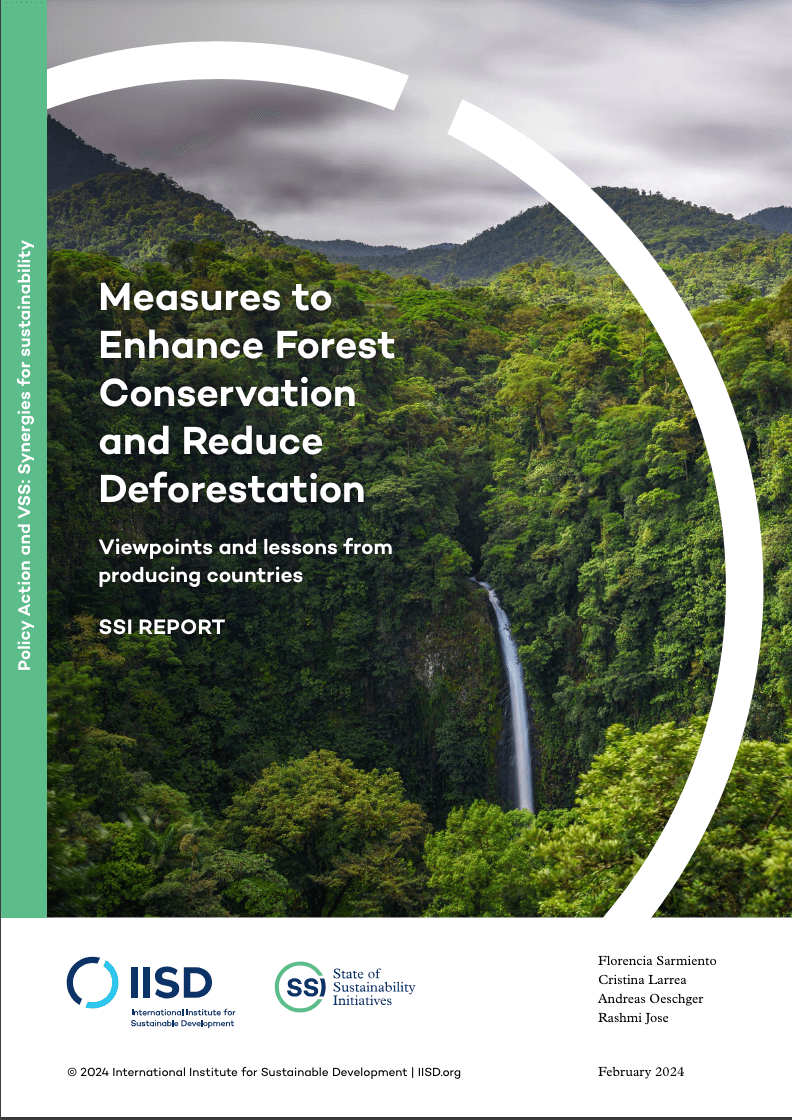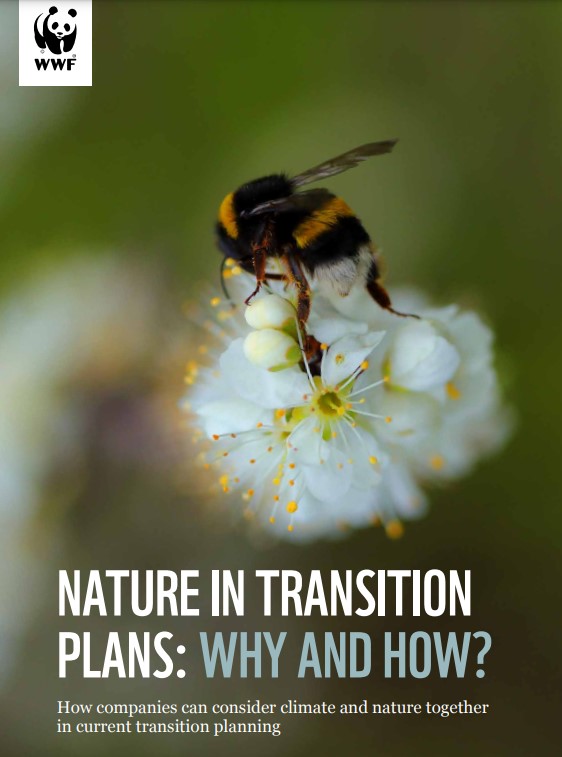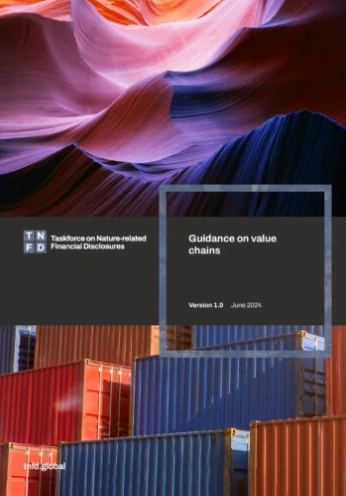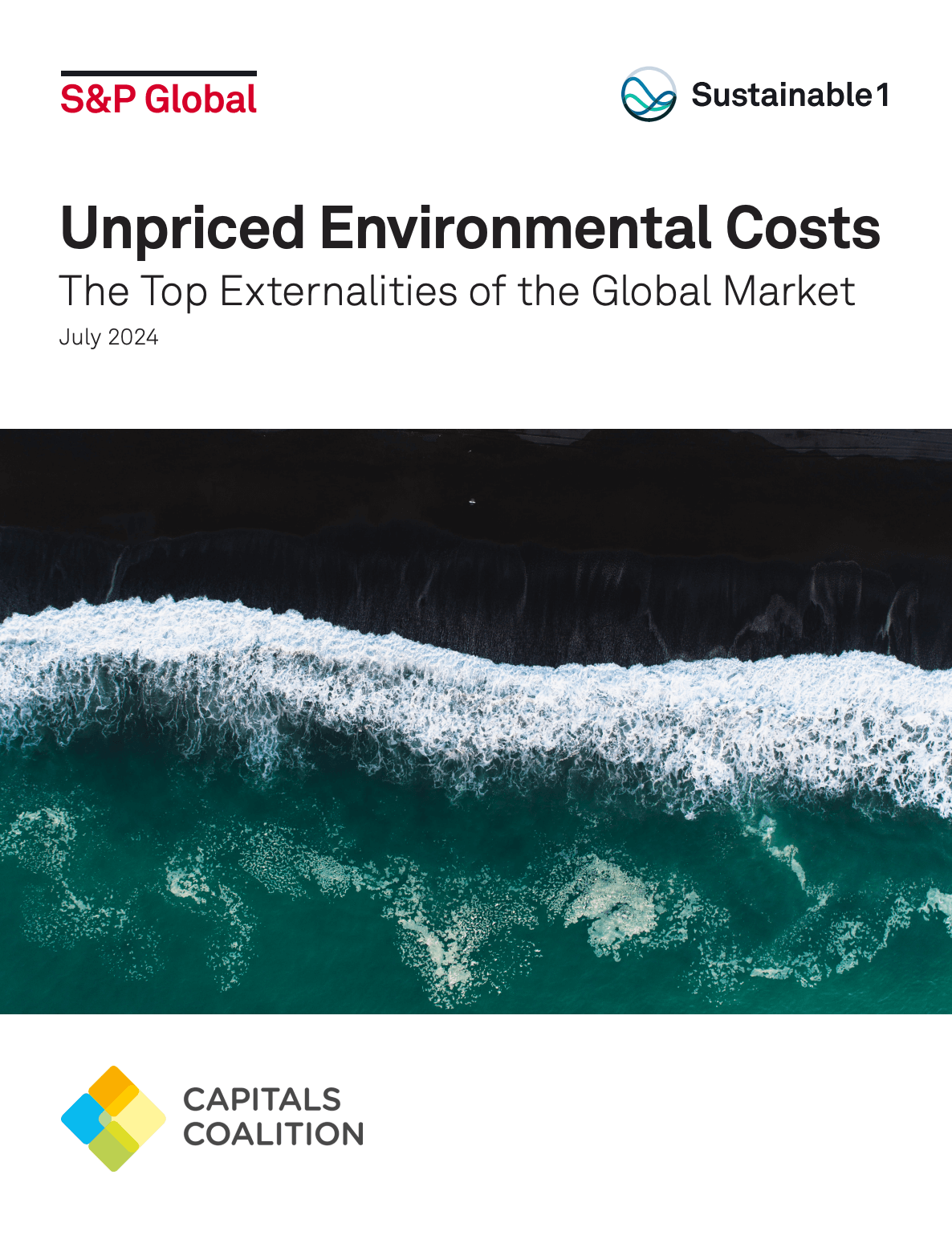Unpriced Environmental Costs: The Top Externalities of the Global Market
Detalles
| The world's publicly traded companies rely on natural capital for their operations, yet they cause trillions of dollars in unaccounted for environmental costs each year, according to a new study by S&P Global Sustainable with input and support from the Capitals Coalition. This research, an important analysis of the hidden costs to the environment and society generated by companies around the world, aims to put a price tag on the most significant negative externalities of the global economy: the indirect impact of economic activities that affects third parties not directly involved in the activities, and which is not reflected in market prices. It examines these costs for more than 12,000 companies included in the S&P Global Broad Market Index. The study concludes that: Companies included in the S&P Global Broad Market Index (BMI) were responsible for $3.71 trillion in unvalued environmental costs through their direct operations in 2021, equivalent to more than 4% of global GDP that year. More than 26% of companies in the S&P Global BMI Index generated unvalued environmental costs in excess of their net income. Greenhouse gas (GHG) emissions were responsible for the majority of unvalued environmental damage costs (63.6%) for these companies, followed by air pollution (26.2%) and land use (4.7%). The impacts of electricity generation from fossil fuels – particularly coal – represented the largest source of environmental costs on a global scale. S&P Global BMI companies in the agriculture and livestock sector groups are highly dependent on ecosystem services, but they also generate the majority (57%) of the costs for environmental damage related to land use. In some regions, companies are taking steps to address their human and social capital responsibility through human resource protection commitments. |
Recursos relacionados

Measures to Enhance Forest Conservation and Reduce Deforestation. Viewpoints and lessons from producing countries
Forests sustain and protect us in a thousand ways, but they are disappearing rapidly. The world has lost 420 million…

2023
Nature in transition plans: Why and how? How companies can consider climate and nature together in current transition planning
Este informe de WWF brinda orientación para aprovechar la oportunidad crítica de la planificación de la transición para brindar soluciones…

Guidance on value chains
This TNFD guide provides additional support to organizations in identifying and assessing dependencies, impacts, risks, and opportunities in their upstream…


